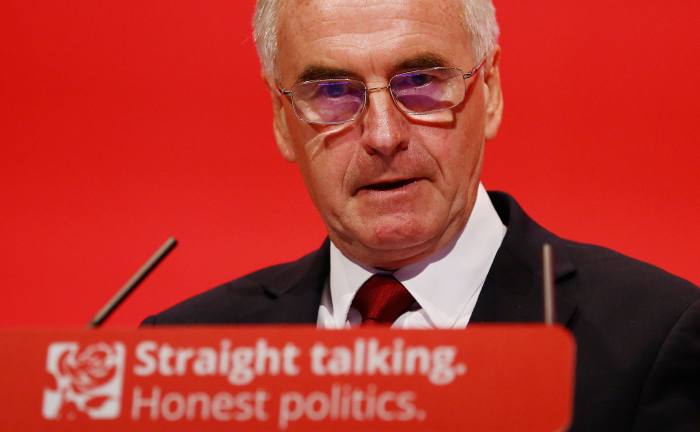
Labour says it will retain the triple-lock on state pension increases if elected as part of a list of pension pledges issued today (12 April).
Shadow Chancellor John McDonnell posted the pension pledges to his Twitter feed this morning.
They include retaining the triple-lock - which links state pension increases to the highest of earnings, prices or 2.5 per cent - until 2025, five years later the current Conservative government policy of guaranteeing the triple lock until 2020.
Other planks of the Labour policy is protecting the state pensions of overseas pensioners, many of whom have their payments frozen; and providing extra help to women affected by increases in their state pension age.
Mr McDonnell said: “It’s a national scandal that pensioner poverty is rising and the Tories are refusing to commit to keeping the triple-lock or compensate women worst affected by the speeding up in the state pension age.
“Only a Labour government will stand up for pensioners and protect them throughout the next parliament.”
Mr McDonnell's pledge of protecting the value of state pensions for overseas pensioners would help UK retirees in Australia, New Zealand and Canada, who do not have a ‘bilateral’ deal with the UK, which means the state pension for UK expats is does not increase in line with inflation.
Tom Selby, senior analyst at AJ Bell, saw the pledges as a ploy to target the power of the grey vote, but questioned whether such policies were sustainable.
“The central pledge to retain the state pension triple-lock goes against the recommendations of both the Work and Pensions Select Committee and John Cridland’s independent report, both of which concluded the policy should be scrapped," he said.
"The cost of Labour’s triple-lock promise is, of course, uncertain – if earnings and inflation are below 2.5 percent between 2020 and 2025, for example, it could be very expensive."
Selby noted that UK governments have previously baulked at the cost of providing inflation increases for pensioners in Australia, Canada and New Zealand, which is estimated to cost around £200m a year by 2020.
david.rowley@ft.com





